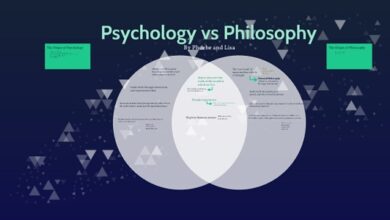What is Emotional Abandonment signals and Consequences
Emotional abandonment
We all want to be accepted and loved, whether by our family, partner or group of friends, since social relationships are part of our human nature and we always want them to be the healthiest possible. In this article we will provide you the information about the phenomenon of Emotional abandonment.
However, sometimes we feel that a loved one does not pay enough attention to us or is distant and cold, not knowing exactly what it is.
Emotional abandonment is something that can be experienced with deep suffering and not everyone manifests the same signs . In this article, we will address this feeling, in addition to relating it to some disorders in which it plays an important role.
More about Emotional abandonment
The term emotional abandonment is a little difficult to define, as it depends on how each person experiences it and the meaning they give to it. Trying to define it as objectively as possible, emotional abandonment is a subjective state in which a person feels unwanted, neglected, or has lost a source of emotional sustenance, either suddenly or gradually.
Because it is a situation of abandonment, the emotional bond is unilaterally broken , that is, one of the two people involved in the relationship, whether family or intimate, ceases to be part of it without prior notice or very abruptly. When this happens, the other person, who feels attached to the one who abandoned them, suffers emotional consequences as a result of the rejection.
Signals
Whether in a couple, between friends or in a family, there are several signs that indicate that there is an emotional abandonment situation .
However, these can be so subtle that they may not be noticed. Although they can be very simple behaviors, which apparently are not done with bad intentions, they end up becoming very harmful. Some of the most common signs are:
1. Talk about routine and superficial issues
When two people who love each other just spend a few minutes a day talking about superficial subjects like the weather, it can turn into a situation where one of them doesn’t feel loved enough by the other .
Also, in the field of friendships or family, this can cool the relationship in the long run.
2. When there are other people and everyone talks only to their own friends
When a couple goes out and one of the lovers has more relationships with the group of friends than the other and they don’t share the same friendships .
Although it may be a sign that does not indicate anything serious, the fact that each of the two dedicates themselves to talking to their friends and leaves the other aside may indicate that there is a certain intention to ‘abandon’ the couple.
If this situation is repeated several times, it could indicate that both are interested in ignoring each other when there are other people around, taking advantage of this social situation.
3. Mistrust
When two people, whether siblings, parents, friends or lovers, feel that they cannot count on each other for important matters, it is a clear indicator that there is a lack of trust.
In turn, the lack of trust contributes to the situation of emotional abandonment , because the victim feels that he is not taken seriously or valued enough.
4. Disinterest in the other’s affection
Human beings, as the social animals that we are, need affection . Caresses, hugs, kisses and compliments are aspects that, although they may seem small, are not.
When a person is approached and does not respond correctly to these acts, or gives very little importance, it can generate a feeling of rejection.
A good relationship is one in which both feel equally loved and respond when affectionate acts are shown.
Consequences and associated disorders
People who have been emotionally abandoned can manifest a wide range of associated problems , which can vary in their severity and impact on everyday life. The most common types of symptoms are usually depressive, such as sadness, loss of interest in formerly pleasurable activities, and avoidance of interaction with other people, both for fear of being hurt again and for lack of desire.
It must be said that these types of situations are part of everyone’s life, which is why you must not make the mistake that suffering from emotional abandonment will necessarily imply the development of a psychological disorder, but it can be a risk factor. A person who is going through a process of this type can develop in a way that is totally adapted to his day-to-day life, he will just go through a bad time.
1. Separation anxiety
This type of anxiety is seen by many as a major source of distress and dysfunction in the individual .
Caregiver separation creates a situation that is fertile ground for the perception of emotional abandonment.
Losing a relationship creates uncertainty in the individual. Not knowing whether the loved one will return or not, whether it is one of the parents or the couple, along with the fear of not knowing whether this adversity can be overcome, creates emotional tension.
This, combined with the discomfort that the feeling of abandonment causes, makes the person constantly self-evaluate, looking for flaws and weaknesses.
2. Psychological trauma and post-traumatic stress disorder (PTSD)
Although this can be due to an extreme case, the truth is that there are people who manifest symptoms of PTSD when the relationship with a loved one is interrupted.
Constantly experiencing emotional suffering can generate a traumatic situation that , although it does not have to become pathological, will produce important sequelae in the way the person behaves.
If the breakup of the relationship was abrupt, the person may fear that, in future relationships, this event will happen again, living in a situation of constant fear that the past will be repeated.
3. Borderline Personality Disorder (BPD)
Among the most characteristic symptoms of BPD are the fear of criticism and social rejection, as well as the great fear of being abandoned.
People suffering from this disorder are very sensitive towards other people, as well as having difficulty controlling their emotions and impulsiveness.
It may also be accompanied by self-doubt and paranoid thoughts.
4. Other problems
As already stated, emotional abandonment, while an unpleasant situation, need not involve pathology .
Given the experience of one of these situations, the person can go through many different feelings, depending on the experience and their personality.
Some people hate themselves since they see indications that what happened is due to their fault and therefore believe they could have behaved differently to avoid it.



